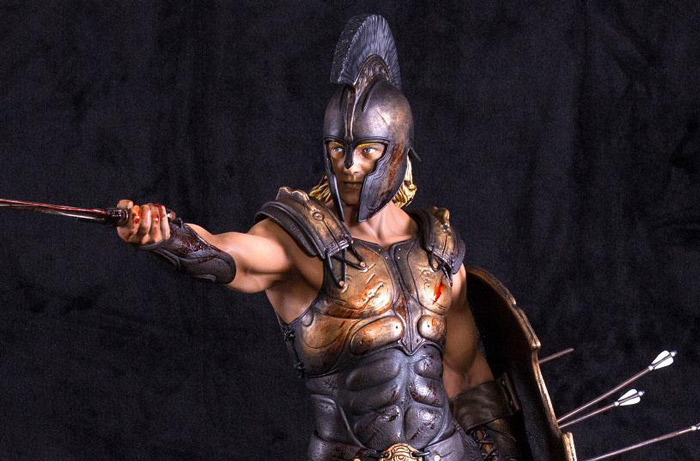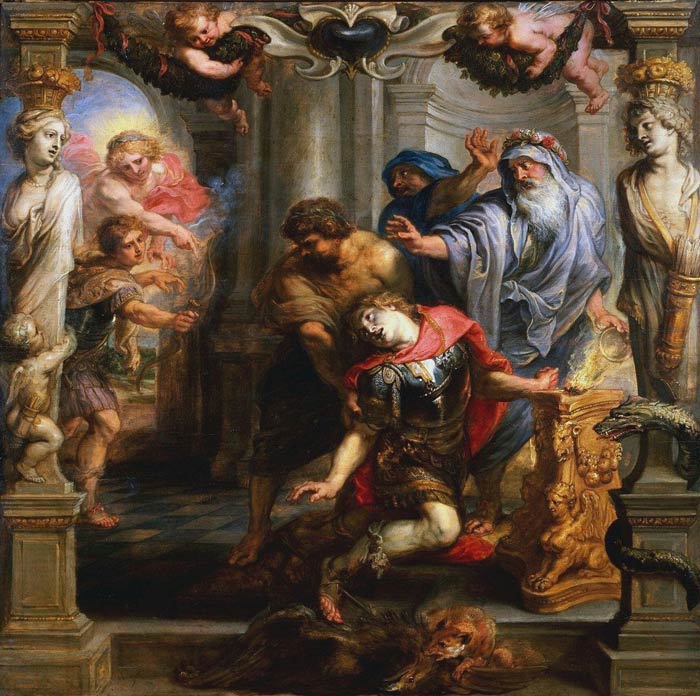Where does the expression Achilles heel take the beginning? The myth of the hero will introduce children to the history of his exploits in expressions that are understandable to the kids.
Achilles' heel
Many traditions of ancient Greece have several options. Achilles heel myth belongs to such legends. According to one version, the hero’s mother tempered him in divine fire, and during the day she rubbed with ambrosia. The second version of the story about how the great warrior gained his invulnerability, says that Fetida dipped him into the water of the river of the dead – Styx. In both cases, the only weak spot of the boy was the heel for which the baby was held.
Achilles became famous as a great warrior. From childhood, he grew up strong and outstanding young men. He was unknown to fear and timidity. There was no one that could scare the hero. Being still very small, he went hunting to kill lions and terrorizing peasants of wild boars.
There was not only power in it, but also speed. According to legend, Achilles could easily drive a deer. Having caught up with the beast, he fell with his bare hands and the defeated carried him home.

He grew up under the instruction of his mother Fetida. Although she was the goddess, she did not forget about the mortal son for a day. With instructions and teachings was the mother to Achilles.
Once, the leader of the warriors of Menelaus, known in those days, began to collect a new army to go to the war for Troy. Fetida had a gift from the predictor. She saw the difficult death of her son in the war and in every possible way tried to protect him from this fate. At the direction of his mother, Achilles was hidden on the island of Skiros. There, in the palace of the Lucomed, he was hiding dressed in women's clothes.
However, the diviners also knew about the fate of the young man. The myth of the great Achille tells that they saw in the visions the well -made fate of the hero and precisely predicted where to find him. The leaders of Odysseus and Diomed went to Skiros under the cover of trade ships. In the outfit of the merchants, warriors came to the palace.
For a long time they could not understand which of the king’s daughters was actually a disguised boy. Then Odysseus came up with a trick. He laid out jewelry, clothes, fabrics in the wards. Among the colorful silk, the leader and onions with arrows also laid. But Achilles did not betray himself.
Odysseus ordered his soldiers standing outside to publish a combat cry. There was a noise similar to screams preceding battle. The princesses of Skiros in fear fled to the wards, but one of them, grabbing the bow immediately rushed to the exit. This was the disguised Achilles. Diomede turned to him and called for participating in the previous war, and he, without thinking, agreed.
The young hero was an obedient son, so he followed the decree of his mother, but the boy was not pleased to wear women's dresses. Therefore, having received an invitation to do the worthy of a real man, Achilles gladly accepted him.
The valor followed in the footsteps of the young hero. In the very first days, he gained a reputation as a great warrior.Fearlessness and the ability to handle the sword provided the young man with military glory. The myth says that they committed a large number of exploits on the battlefield. Good luck accompanied the boy everywhere.
He took part in the attack on the surrounding Troy cities. Pedas and Learnes submitted to his sword. During the battles of his captivity, Bresheid, on which the leader Agamemnon laid his eyes. He took the captive from the young man and thereby strongly offended Achilles. This act so upset the hero that he refused to continue the war against Troy. He folded his sword and left the battlefield, but his friend’s death forced the young man to pick up the weapon again.

The whole essence and origin of the expression of the Achilles Heel consists in the ridiculous death of the hero. After returning the Greeks, Achilles was able to plunge Troy. He went to the royal palace, where he met with Prince Paris, who hated him. He took the bow and shot at the young man. Begging for the blessing of the god Apollo, he released two arrows, one of which pierced the only weak point in the hero not a body. The poisoned tip left no chance to Achilles to survive. His adventures and exploits later described Homer in his Iliad.

